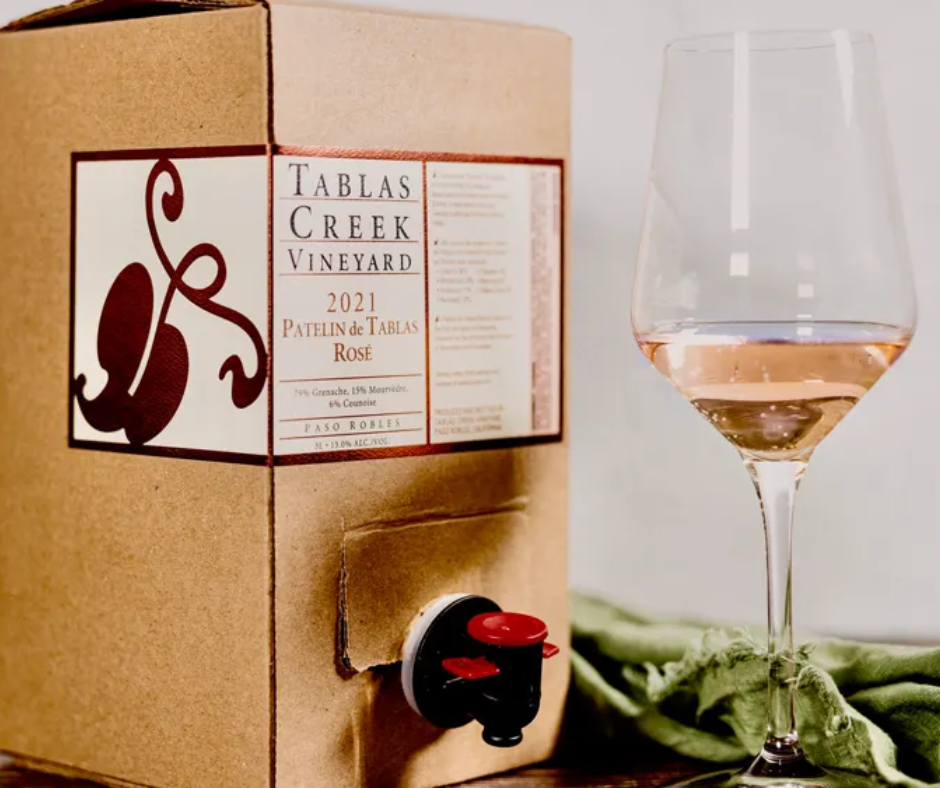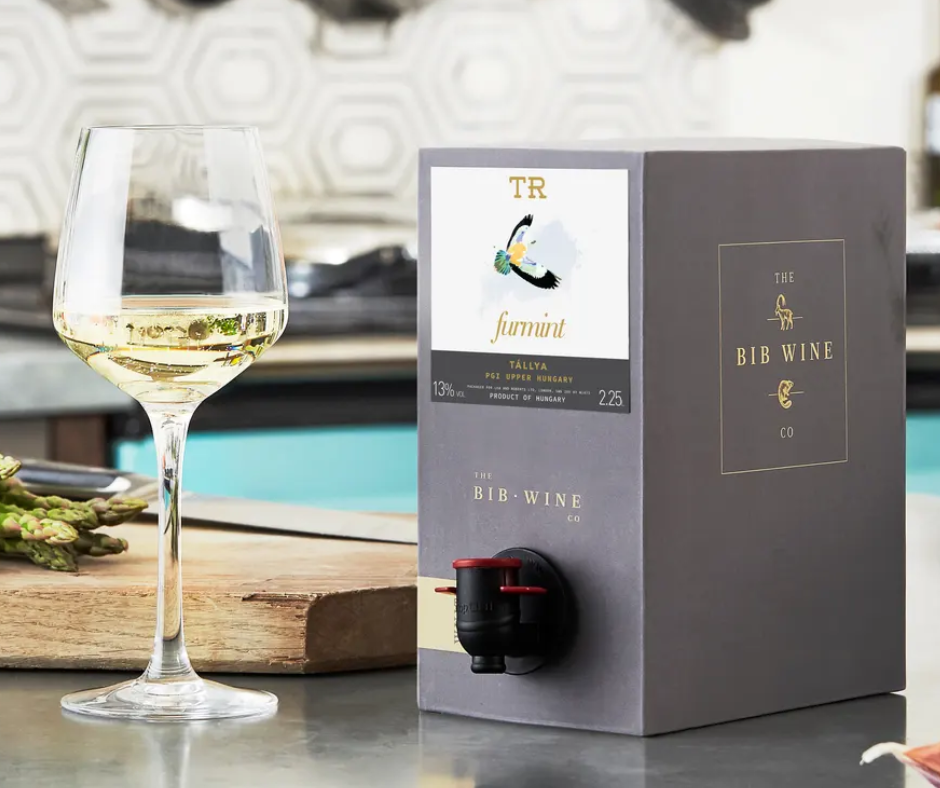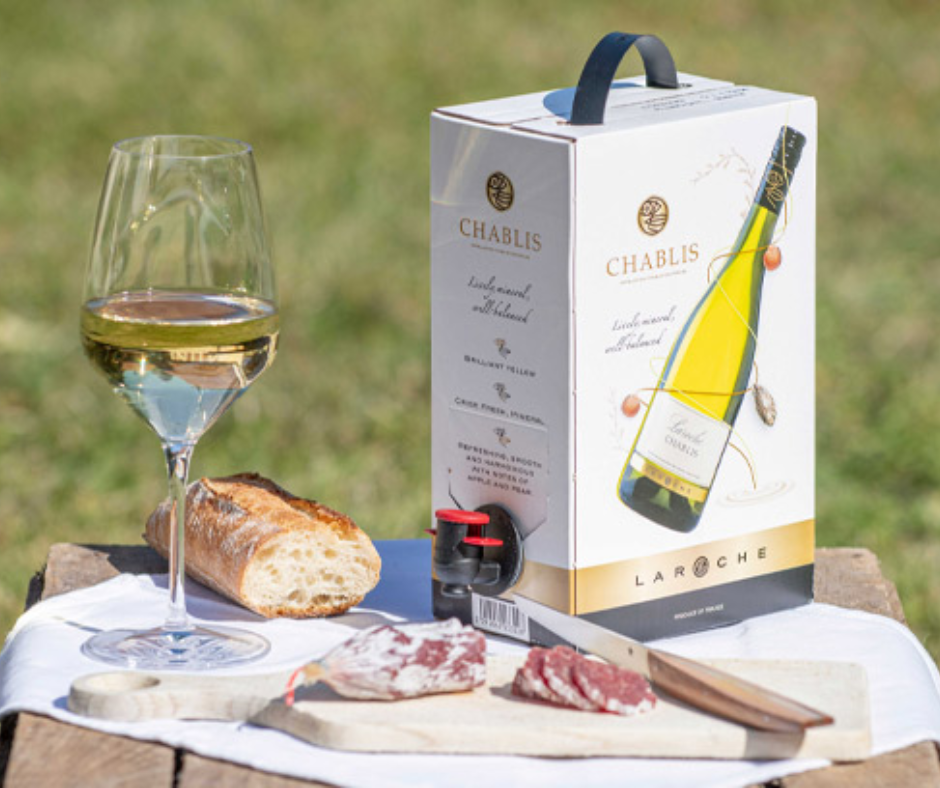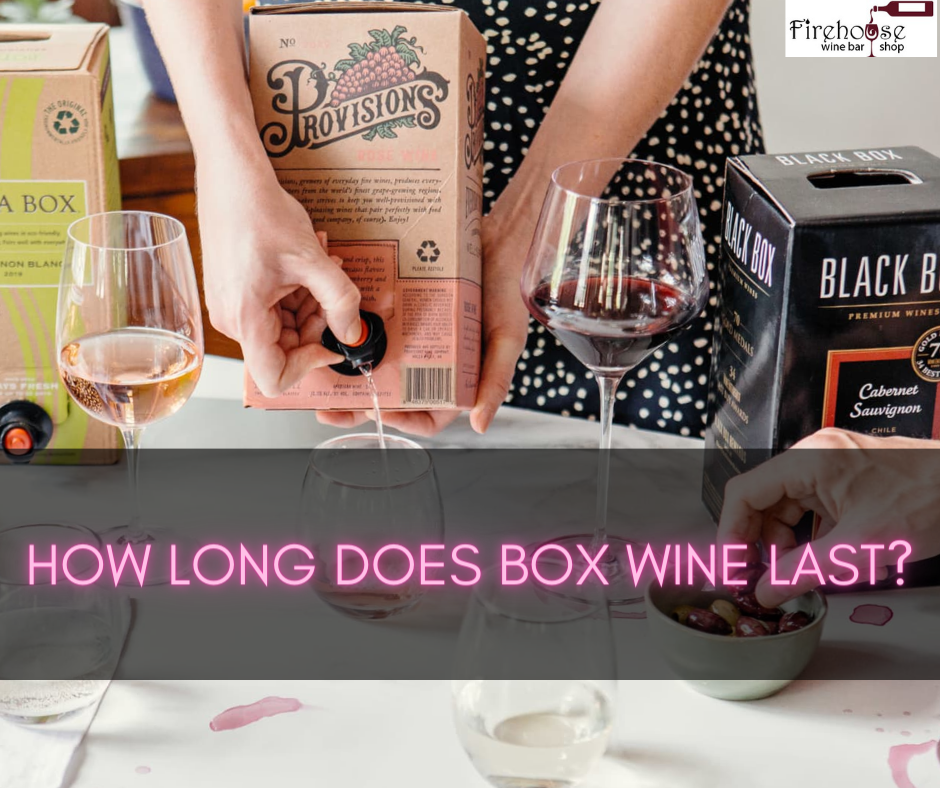Introduction
What Is Box Wine, And Why Is It Popular?
Boxed wine, also known as bag-in-box wine, is a type of wine packaging that consists of a plastic bag inside a cardboard box. The bag is typically sealed with a tap or spout for easy pouring. Boxed wine has gained popularity over the years due to its convenience, affordability, and ability to keep the wine fresh for longer periods compared to traditional bottled wine.
One of the advantages of boxed wine is that it can last much longer than an open bottle. Unlike a bottle that can go sour after opening, boxed wine can stay fresh for weeks or even months, depending on certain factors. So, How Long Does Box Wine Last?
Factors That Affect The Longevity Of Box Wine
- Packaging: The boxed wine design helps minimize its exposure to oxygen. As the wine is poured out, the bag inside the box collapses, reducing the surface area exposed to air. This preservation feature helps slow the oxidation process and prolong the freshness of the wine.
- Temperature: The storage temperature is crucial for maintaining the quality and longevity of boxed wine. Cold temperatures slow oxidation and prevent the wine from absorbing nutty, oxidized notes. It is recommended to store boxed wine in a cool place, away from direct sunlight and excessive heat.
- Consumption rate: The speed at which you consume the wine also affects its longevity. Once the box is opened, the wine interacts with the air, and its quality gradually deteriorates. To ensure the best taste, consuming boxed wine within 6-8 months of purchase is suggested and finishing it within six weeks of opening.
In conclusion, boxed wine offers the convenience of a longer shelf life compared to traditional bottled wine. With proper storage and consumption, boxed wine can provide a fresh and enjoyable drinking experience for weeks or months after opening. So, next time you consider a wine option, don’t overlook the benefits of a well-packaged box wine.

Box Wine Longevity
Difference Between Boxed Wine And Bottled Wine Shelf Life
Boxed wine offers a significant advantage over traditional bottled wine regarding shelf life. Once a bottle of wine is opened, it is exposed to oxygen, causing it to deteriorate within a few days or weeks. On the other hand, boxed wine can last much longer, often up to several weeks or even months after being opened. The sealed bag inside the box collapses as the wine is poured out, minimizing its air exposure and slowing the oxidation process. This preservation feature helps to maintain the freshness and quality of the wine for an extended period.
How Long Does Box Wine Last When Unopened?
So, How Long Does Box Wine Last Before Opening? Before opening, boxed wine can last for a considerable amount of time, typically ranging from 6 months to a year, depending on the specific type and quality of the wine. The airtight packaging of boxed wine helps to protect it from oxidation, keeping it fresh and flavorful until it is ready to be enjoyed. However, it is important to note that the quality of boxed wine may gradually decline, so it is best to consume it within the recommended time frame.
It is worth mentioning that various factors can influence the longevity of boxed wine after opening. The storage temperature is crucial, as cold temperatures slow oxidation and help preserve the wine’s freshness. Storing boxed wine in a cool place, away from direct sunlight and excessive heat, is ideal for maintaining its quality.
Additionally, the consumption rate of boxed wine also affects its longevity. Once the box is opened and the wine is exposed to air, its quality deteriorates. To ensure the best taste and experience, consuming boxed wine within 6-8 months of purchase is recommended and finishing it within six weeks of opening.
In conclusion, boxed wine offers a longer shelf life than traditional bottled wine. Thanks to its efficient packaging design and preservation features, it can remain fresh and enjoyable for weeks or months after opening. By storing it properly and consuming it within the recommended time frame, boxed wine can provide a convenient and satisfying drinking experience. So, the next time you’re looking for a wine option, don’t underestimate the benefits of a well-packaged box wine.
Factors Affecting The Longevity Of Box Wine
Oxidation And Its Impact On Boxed Wine
One of the key factors determining boxed wine’s longevity is its susceptibility to oxidation. When wine comes into contact with air, it undergoes a chemical reaction that leads to the deterioration of its flavors and aromas. Boxed wine has a distinct advantage in minimizing oxidation, unlike bottled wine, due to its unique packaging design.
Inside a box of wine, there is a sealed bag that holds the wine. The bag collapses as the wine is poured out, minimizing its exposure to air. This efficient packaging helps slow the oxidation process and maintain the freshness and quality of the wine for a longer period. As a result, boxed wine can often last several weeks or even months after being opened without compromising its taste.
Effects Of Temperature And Storage Conditions On Boxed Wine
In addition to oxidation, the longevity of boxed wine is also influenced by temperature and storage conditions. Temperature is crucial in slowing the oxidation process and preserving the wine’s freshness. It is recommended to store boxed wine in a cool place, away from direct sunlight and excessive heat. This helps maintain the wine’s quality and prolong its shelf life.
Furthermore, the consumption rate of boxed wine can also affect its longevity. Its quality declines once the box is opened and the wine is exposed to air. To ensure the best taste and experience, it is advisable to consume boxed wine within 6-8 months of purchase and finish it within six weeks of opening. By adhering to these guidelines, wine enthusiasts can enjoy the full flavors and aromas of boxed wine.
In conclusion, boxed wine has a longer shelf life than traditional bottled wine. Its efficient packaging design minimizes oxidation and helps preserve the wine’s freshness and quality for an extended period. By storing it properly and consuming it within the recommended time frame, boxed wine can provide a convenient and satisfying drinking experience. So, if you’re looking for a wine option that can last longer and maintain its taste, boxed wine is worth considering.

Box Wine Varieties And Longevity
White Box Wine Shelf Life
White box wine, just like any other boxed wine, has its specific shelf life. However, it is important to note that the longevity of white box wine can vary depending on the specific brand and variety. Generally, white box wines are meant to be consumed within 6-8 months of purchase. This timeframe ensures the wine is enjoyed at optimal quality and flavor.
When it comes to storing white box wine, it is recommended to keep it in the refrigerator. While boxed wines can last up to 2 weeks in the fridge, it is crucial to chill your reds properly to maintain their freshness. By storing white box wine at a cool temperature, you can extend its shelf life and enjoy a refreshing glass whenever desired.
Red Box Wine Shelf Life
Like white box wine, red box wine has a recommended shelf life of 6-8 months. However, the storage conditions for reds differ slightly. It is important to note that red wine should never be stored on top of the fridge, as the heat emitted from the appliance can affect its quality and taste.
To preserve the flavors and aromas of red box wine, storing it in a cool place away from direct sunlight and excessive heat is recommended. This ensures that the wine ages gracefully and maintains its rich palette of flavors.
Overall, boxed wines, including white and red varieties, offer a convenient and longer-lasting option compared to traditional bottled wines. While they are not designed for aging like fine wines, when properly stored and consumed within the recommended time frame, boxed wines can provide a satisfying drinking experience. So go ahead, grab that box of wine, and enjoy its flavors and convenience without any worries. Cheers!
How Long Does Box Wine Last Once Opened?
Factors Influencing The Lifespan Of Opened Box Wine
When it comes to boxed wine, the lifespan once opened can vary based on several factors. Here are some key factors that can influence how long your box of wine will last after being opened:
- Quality of the seal: The seal on the box plays a significant role in the longevity of your box wine. A tight, secure seal helps prevent oxidation and maintains the freshness of the wine for a longer period.
- Temperature storage: The temperature at which you store your opened box of wine can impact lifespan. Ideally, storing opened box wine in the refrigerator is recommended, as the cool temperature helps slow down the oxidation process, preserving the flavors and aromas.
- Exposure to oxygen: Oxygen is the enemy of wine and can cause it to spoil faster. To extend the lifespan of your opened box wine, it is crucial to minimize its exposure to oxygen. Ensure the wine bag is tightly secured and free from leaks or punctures.
- Wine variety: Different wine varieties have varying lifespans once opened. Generally, lighter wines such as whites and rosés have a shorter lifespan than fuller-bodied reds. This is because lighter wines have higher acidity and are more susceptible to oxidizing.
Tips To Extend The Shelf Life Of Opened Box Wine
To make the most of your opened box wine and prolong its shelf life, here are some tips to keep in mind:
- Store it properly: As mentioned earlier, storing your opened box of wine in the refrigerator can help maintain its freshness for longer. Keep the temperature constant and avoid exposure to direct sunlight or excessive heat.
- Limit exposure to air: Whenever you pour a glass of wine from the box, try to minimize its exposure to air by promptly closing the tap or resealing the bag properly. This helps prevent oxygen from getting inside and causing the wine to spoil.
- Consume within the recommended time frame: While boxed wine can last for several weeks once opened, it is best to consume it within the recommended time frame to ensure optimal taste and quality. Most experts agree that two to three weeks is the sweet spot for enjoying box wine at its best.
By following these tips, you can extend the shelf life of your opened-box wine and continue to enjoy its flavors and convenience for an extended period. So, savor every sip, knowing your box wine will stay fresh and delightful. Cheers!

Signs Of Box Wine Spoilage
Indications That Boxed Wine Has Gone Bad
Boxed wine is a convenient and affordable option for many wine enthusiasts. However, boxed wine can go bad if not stored and handled properly like any other type of wine. Here are some indications that your boxed wine may have spoiled:
- Unpleasant odor: If your boxed wine has a strange or off-putting smell, it is likely a sign of spoilage. Wine should have a pleasant aroma, so it may be time to discard it if it smells like vinegar, wet cardboard, or anything other than fruity or floral notes.
- Altered color: A color change is another telltale sign of spoiled boxed wine. If the wine looks cloudy or brownish or has unusual hues, it indicates that it has oxidized or developed microbial contamination.
- Unappealing taste: The most obvious indication of spoiled wine is a displeasing taste. It has likely gone bad if your boxed wine tastes sour, vinegary, or has any other unpalatable flavors. Wine should be enjoyable and have a balanced taste, so it’s best to pour it out if it tastes off.
How To Tell If Box Wine Is Still Drinkable
While boxed wine has an expiration date, it doesn’t necessarily mean it will be undrinkable once that date has passed. Here are a few ways to determine if your box wine is still drinkable:
- Check for leaks or signs of damage: Inspect the box for any leaks, tears, or punctures. If the wine bag inside the box has been compromised, it can lead to spoilage. If there are no visible signs of damage, it’s a good indication that the wine is still drinkable.
- Examine the seal: A tight and intact seal on the box is crucial for preserving the wine’s freshness. If the seal seems loose or broken, the wine is likely exposed to excessive oxygen, which can result in spoilage.
- Taste a small amount: If the wine passes the visual and seal inspection, you can pour a small amount into a glass and taste it. Trust your senses – it should still be drinkable if it tastes pleasant, without any off-flavors or signs of spoilage.
In conclusion, by being aware of the signs of spoilage and following proper storage and handling techniques, you can ensure that your boxed wine lasts longer and remains enjoyable. However, it is always better to err on the side of caution and discard any boxed wine that shows clear signs of spoilage, as drinking spoiled wine can be unpleasant and potentially harmful.
Preserving Box Wine Longevity
Proper Storage Techniques For Box Wine
To ensure the longevity of your boxed wine, proper storage is essential. The first step is placing the opened wine box in the refrigerator. This will slow down the wine’s exposure to oxygen and help maintain its freshness. The fridge’s cool temperature will also help slow the oxidation process.
It’s important to note that while some may claim that boxed wine can last up to three months in the fridge, most experts agree that six weeks is the maximum time you should take to finish a box of wine. The sweet spot for enjoying boxed wine’s best quality and flavor typically lasts two to three weeks.
When storing your box of wine in the fridge, keep it away from strong odors or foods with a strong smell, as the wine can absorb these scents. Additionally, avoid placing the box near the back of the fridge where the temperature fluctuates more, affecting the wine’s quality.
Additional Measures To Extend The Life Of Box Wine
In addition to proper storage in the refrigerator, you can take a few extra measures to extend the life of your boxed wine further. First, keep the box’s spout or tap clean and free from any dirt or contaminants. This will help prevent any unwanted flavors from seeping into the wine.
Furthermore, pouring the wine gently is recommended, avoiding excessive shaking or agitation. This can introduce more oxygen into the wine, accelerating the oxidation process and potentially affecting its taste.
Lastly, consider transferring the remaining wine to a smaller container when the box is almost empty. This will reduce the air in the container, minimizing the wine’s exposure to oxygen and maintaining its freshness for a little longer.
By following these proper storage techniques and taking additional measures to extend the life of your boxed wine, you can ensure that each glass remains enjoyable and full of flavor. Remember, while boxed wine can offer convenience and affordability, consuming it within a reasonable timeframe is important to experience the best taste and quality.
Recommendations For Storing Box Wine
Best Practices For Storing Boxed Wine
Proper storage is essential for ensuring the longevity and quality of boxed wine. Here are some best practices to follow:
- Refrigerate after opening: When you open a box of wine, it’s important to place it in the refrigerator. The fridge’s cool temperature slows the oxidation process and helps maintain the wine’s freshness. This is particularly important for red wines, as chilling them slightly can enhance their taste.
- Keep away from strong odors: Store the box away from strong-smelling foods or other items in the fridge to prevent the wine from absorbing unwanted odors. This will ensure that the wine maintains its original aroma and flavor.
- Avoid temperature fluctuations: It’s recommended to keep the box of wine away from the back of the fridge, where the temperature tends to fluctuate more. These temperature variations can negatively impact the quality of the wine. Instead, store the box in a more stable area of the fridge.
- Maintain cleanliness: Keep the spout or tap of the box clean and free from any dirt or contaminants. This will help prevent unwanted flavors from affecting the taste of the wine. Regularly wipe the spout with a clean cloth or paper towel to ensure a clean pour every time.
Common Mistakes To Avoid When Storing Box Wine
To maximize the shelf life of your boxed wine, it’s important to avoid the following common mistakes:
- Leaving the box outside the fridge for too long: Leaving the box of wine outside for extended periods can accelerate the oxidation process. Ensure to promptly return the box to the refrigerator after each use to maintain the freshness of the wine.
- Excessive shaking or agitation: Avoid excessive shaking or agitation when pouring boxed wine, as this introduces more oxygen into the wine and accelerates the oxidation process. Pour gently to minimize oxygen exposure and preserve the wine’s flavor.
- Not finishing the wine within the recommended timeframe: While boxed wine can last longer than bottled wine, it’s still best to consume it within 6-8 months of purchase. After opening, aim to finish the wine within six weeks for optimal taste and quality.
By following these best practices and avoiding common mistakes, you can extend the life of your boxed wine and continue to enjoy its flavors and convenience. Remember to consume the wine within the recommended timeframe to experience the best results.
Conclusion
Factors To Consider For Box Wine Longevity
Now you should know the answer to ‘How Long Does Box Wine Last?’. Boxed wine offers a tremendous advantage in terms of longevity compared to traditional bottled wine. Proper storage and handling can significantly extend the lifespan of boxed wine, allowing you to enjoy it for weeks after opening. Several factors contribute to the longevity of box wine:
- Packaging: The bag-in-box packaging of boxed wine is designed to minimize oxidation, which is the primary factor affecting wine quality and freshness. The airtight bag and spout system prevents oxygen from entering and coming into contact with the wine, ensuring its longevity.
- Refrigeration: Storing opened boxed wine in the refrigerator is crucial for preserving its freshness. The cool temperature slows the oxidation process, ensuring the wine remains flavorful for an extended period. It’s particularly important for red wines, as refrigeration can enhance their taste.
- Temperature stability: Fluctuations in temperature can negatively impact the quality and taste of boxed wine. Avoid storing the box at the back of the fridge, where temperature variations are more likely to occur. Instead, keep it in a stable refrigerator area to maintain its integrity.
Enjoying Box Wine At Its Best
To fully appreciate the flavors and convenience of boxed wine, there are a few tips to keep in mind:
- Finish within the recommended timeframe: While boxed wine can last up to six weeks after opening, it’s best to consume it within 6-8 months of purchase for optimal taste and quality. After opening, aim to finish the wine within a reasonable timeframe to ensure the best experience.
- Handle with care: Avoid excessive shaking or agitation when pouring boxed wine, as this introduces more oxygen and accelerates oxidation. Pour gently to minimize oxygen exposure and preserve the wine’s flavor.
- Store away from strong odors: To maintain the original aroma and flavor of the wine, store the box away from strong-smelling foods or other items in the fridge. This will prevent the wine from absorbing any unwanted odors.
In conclusion, boxed wine offers a remarkable shelf life compared to bottled wine. Following proper storage practices and handling techniques, you can extend the lifespan of boxed wine and enjoy its flavors and convenience for weeks after opening. Remember to refrigerate the wine, avoid temperature fluctuations, and consume it within the recommended timeframe for an optimal tasting experience.
FAQ: Box Wine Longevity: How Long Does Box Wine Last?
Q: How Long Does Box Wine Last After Being Open?
A: According to most experts, boxed wine can last up to 6 weeks longer than opened bottles of traditional wine. However, the consensus is that the optimal consumption period for boxed wine is around 2-3 weeks.
Q: What about unopened boxed wine? How long does it last?
A: Unopened boxed wine generally lasts 2-3 years. However, it’s important to check the specific brand guidelines for expiration dates, as they may vary.
Q: How should I store opened and unopened boxed wine?
A: To maintain the quality and longevity of boxed wine, it is recommended to store it in cool, dark, and quiet conditions, such as a cellar or wine fridge. This helps to prevent exposure to heat, light, and temperature fluctuations that can degrade the wine.
Q: Is there a specific expiration date for boxed wine?
A: The expiration date for boxed wine can vary depending on the brand. It is always advisable to check the manufacturer’s specific guidelines to ensure freshness and taste.
Q: Where can I find more information about how long wine lasts?
A: For a comprehensive guide on wine longevity, including boxed wine, refer to our full guide. It covers various aspects of wine storage and provides valuable insights for wine enthusiasts. If you have further questions, please leave them in the comments section or email us at info@expertwinestorage. We’ll be happy to assist you!
Q: Can boxed wine be consumed beyond the recommended time frame?
A: While boxed wine can still be consumed beyond the recommended time frame, it may start to lose some of its flavors and aromas. It is generally best to consume boxed wine within the suggested period to enjoy its optimal taste.
Q: How has the perception of boxed wine changed over time?
A: Boxed wine has evolved significantly and is no longer considered a low-quality option. Technological advancements and packaging make many quality wines available in boxed format. The convenience, cost-effectiveness, and longer shelf life make boxed wine popular for casual and special occasions.
Q: Can boxed wine be a suitable option for large social gatherings?
A: Absolutely! Many people find that boxed wine is an excellent choice for large social gatherings. Its larger capacity and extended freshness make serving a larger group convenient. It also eliminates the need for multiple bottles and minimizes the risk of spoilage, ensuring consistent quality throughout the event. Cheers to hassle-free hosting!
Q: How should I dispose of an expired boxed wine?
A: When disposing of expired boxed wine, following your local waste disposal guidelines is best. Some areas may allow you to recycle the packaging, while others may require you to dispose of it as regular waste. If in doubt, check with your local recycling center or waste management authority for proper disposal instructions.

Andre Lotz immigrated to the United States from South Africa almost 20 years ago. Still, he didn’t feel truly at home until he settled in Mobile—a city that reminds him of his childhood home of Fish Hoek on the southern cape of Africa.

